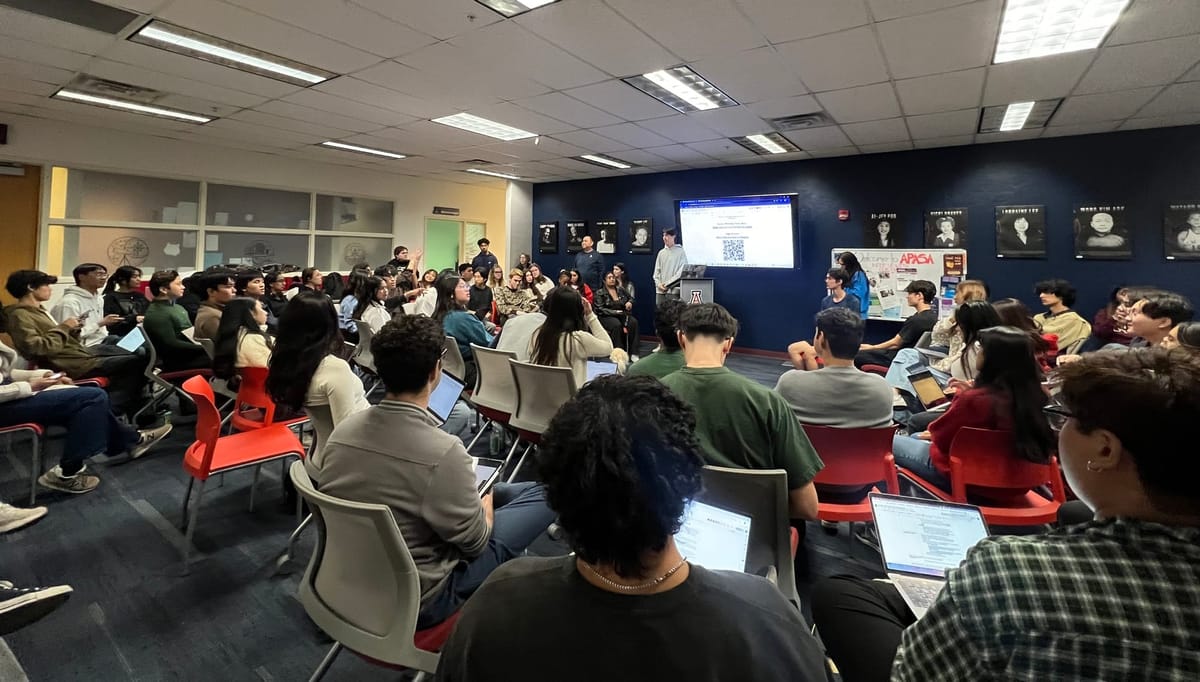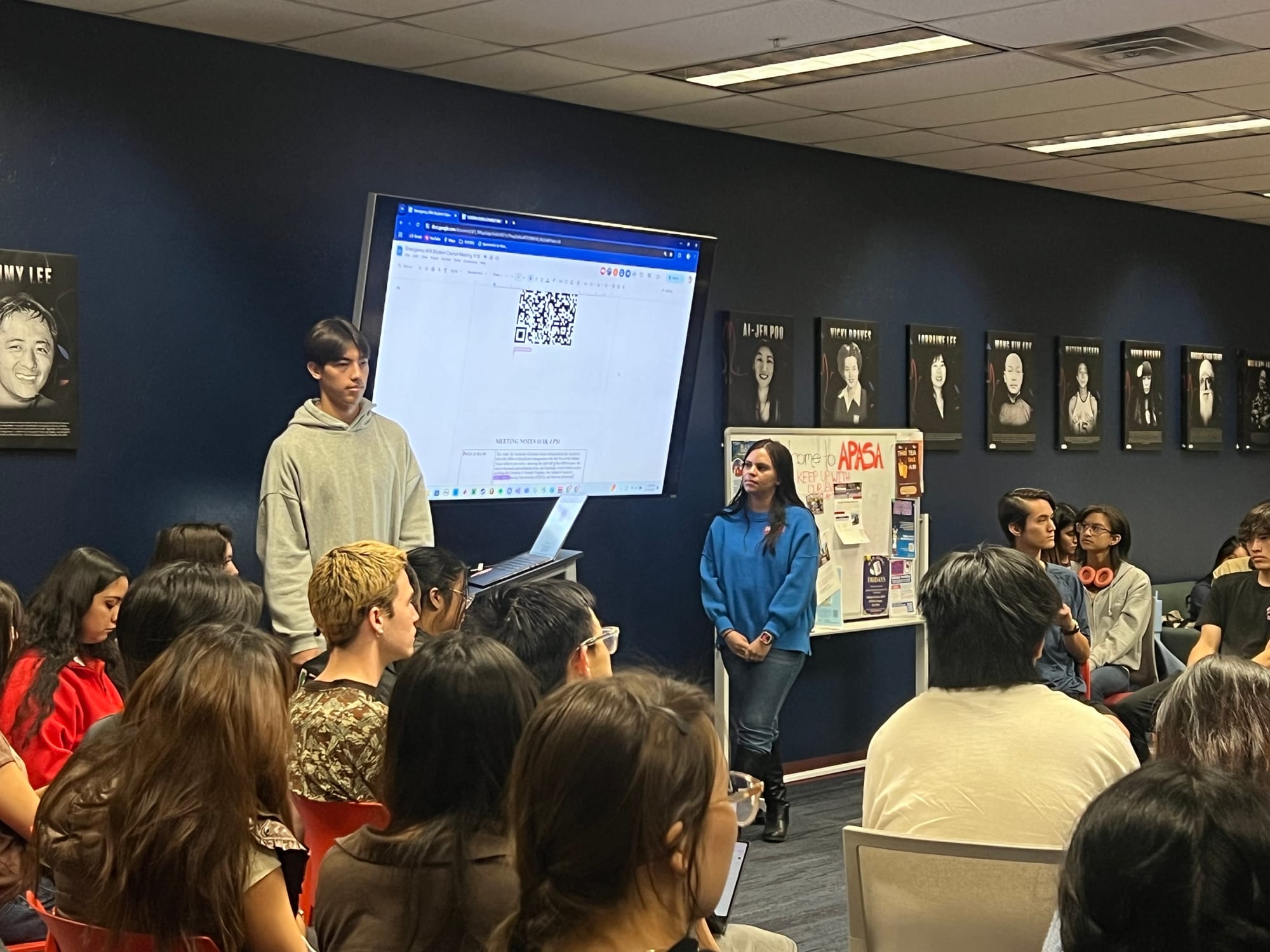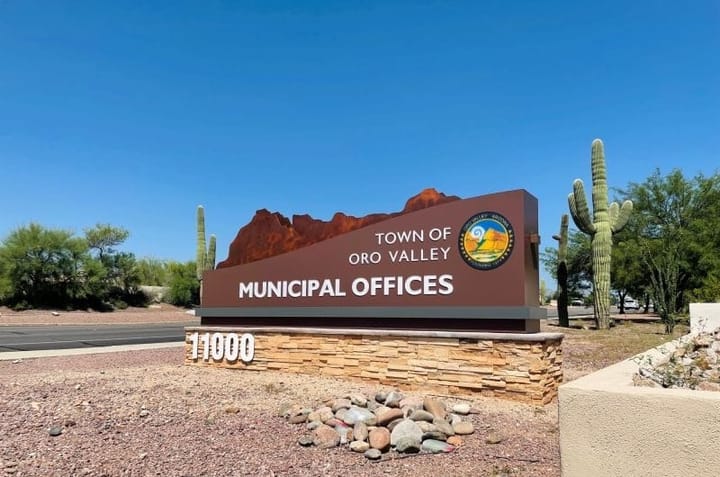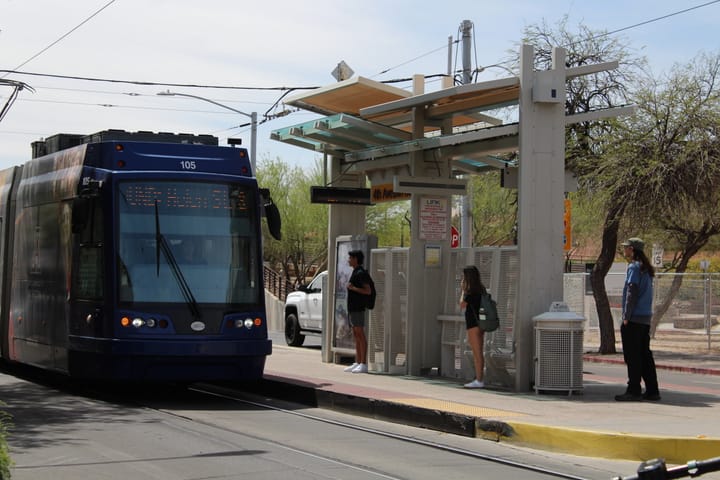UA student groups fear displacement due to administrative move
Impacted groups include Survivor Advocacy, the United Fraternity and Sorority Council, Cultural and Inclusive Experiential Learning Opportunities and the Asian Pacific American Student Affairs

A public forum at the University of Arizona Wednesday will address concerns about student groups that are being displaced from their current spaces in the student union.
The groups were notified by administration last week that they needed to vacate all or part of their spaces on the fourth floor by Nov. 18. The area will be converted into office space for employees with the Office of Enrollment Management, who currently are housed in Old Main.
The UA declined to comment on the situation.
Impacted groups include Survivor Advocacy, the United Fraternity and Sorority Council, Cultural and Inclusive Experiential Learning Opportunities and the Asian Pacific American Student Affairs. The first three groups are being asked to completely vacate the building and APASA has been asked to downsize. The original plan was for the groups to be out of their spaces by January, with the timeline then pushed back to December.
According to the students who belong to each of these groups, there was no communication from administration pertaining to the displacement of their designated spaces.
The impacted groups held an emergency meeting Monday to discuss the recent decision and brainstorm solutions, questions and demands to present at tomorrow’s forum. With more attendees than chairs, many people sat on the floor or stood around the edges of the room.
The meeting was led by UA student Eric Pineda and Associated Students of the University of Arizona President Adriana Grijalva, with all fourth floor students, leaders, faculty and staff invited to attend and voice their concerns.
Grijalva said administration alerted her to the timeline change last week. She said that ASUA, along with many others impacted, were not made aware of the situation until the decision to move up the timeline had been made.
“There were some safety concerns in Old Main,” she said. “They had a lot of lockdowns, targeted things directed at Old Main that made those safety concerns not manageable enough for them to stay there.”

Grijalva was able to set a same-day meeting with UA officials, sharing concerns from the impacted groups. The school agreed to temporarily delay construction on the fourth floor, which had been set to begin Monday, to allow time for student feedback.
“It’s hard to sit in front of people who don’t understand what community is,” she said.
The tentative plan is to convert Old Main into a restricted space with key-card access. The building, which is located at the heart of campus, will be used for meetings and only for the employees who have offices in Old Main.
For one audience member, this explanation didn’t suffice.
“What about the staff that survived a shooting event?” she said. “They didn’t do anything for those people.”
Survivor Advocacy representatives voiced concern that taking away what has been a consistent safe space for survivors of sexual assault and dating violence is not only bad for the victims, but also for the faculty who guides them. They said their displacement means that faculty will no longer have a place to process the difficult issues that are brought to them by students in their classes, which one survivor advocacy representative described as “not ideal.”
APASA Director Kenny Importante said the group got its start in 1993 as a result of student activism. They originally had a small closet-like space in the old student center, but were relocated to the basement of Old Main in 2000. They were pushed out of that space and moved to the Robert L. Nugent Building, then moved again to the student union.
“Enrollment management basically took over (the space in Old Main) where APASA used to be,” he said. “Now many years later, even after students asked for such space, the students will have to (again) give up some of their spaces.”
If the move proceeds as planned, APASA will no longer have a front desk area, where many students congregate during the day. Representatives from the organization talked about their relationships with the other groups that are being physically displaced.
“It is physically disconnecting us from the community as well, which is a huge blow,” they said. “The (United Fraternity and Sorority Council) is already underrepresented as it is, because they are a multicultural fraternity sorority and the fact that they use the commons rooms for a lot of their process meetings and a lot of general meetings is a big blow.”

The United Fraternity and Sorority Council is the governing body for the UA’s 18 identity-based and multicultural fraternities and sororities.
A representative from the group said their space in the student union is used daily by students, adding that the decision would also impact the larger Greek Life community, which uses the space for rituals, intake, meals, presentations and other important activities related to initiation.
“Now, students can’t even occupy a space that is dedicated for them,” said one FSP representative. “I feel like the administration has the attitude where they don’t see enough people of color walking around on campus to believe that there are this many people of color that make this institution what it is.”
The council has not yet found a new location to move its services, but Cultural and Inclusive Experiential Learning Opportunities has moved to the Bartlett Academic Success Center and Survivor Advocacy is being temporarily housed in the Yuma building.
A representative from Survivor Advocacy said the burden was placed entirely on the groups to find alternative locations on campus. Another unnamed audience member wasn’t satisfied with the lack of transparency excuse from the administration, calling it “lame.”
“They don’t give a damn,” she said. “They’re going to do what they want and ask for forgiveness later.”
Wednesday’s forum will begin at 4:30 p.m. in the Gallagher Theater Students representing various organizations housed on the student union’s fourth floor are set to speak, and a formal letter protesting the decision will be presented to administration. The goal is to further delay construction to allow the impacted groups to find alternative spaces that will fit their needs.
During Monday's meeting, students were encouraged to attend the forum as well as the ASUA Senate’s weekly meeting, which takes place immediately after.
“This is not the administration union. This is the student union and student organizations have a right to be here, and they certainly should have been consulted.” one audience member said.
McKenna Manzo is a journalism major at the University of Arizona and Tucson Spotlight intern. Contact her at mckennamanzo@arizona.edu.
Olivia Krupp is a journalism major at the University of Arizona and Tucson Spotlight intern. Contact her at oliviakrupp@arizona.edu.
Tucson Spotlight is a community-based newsroom that provides paid opportunities for students and rising journalists in Southern Arizona. Please support our work with a paid subscription.





